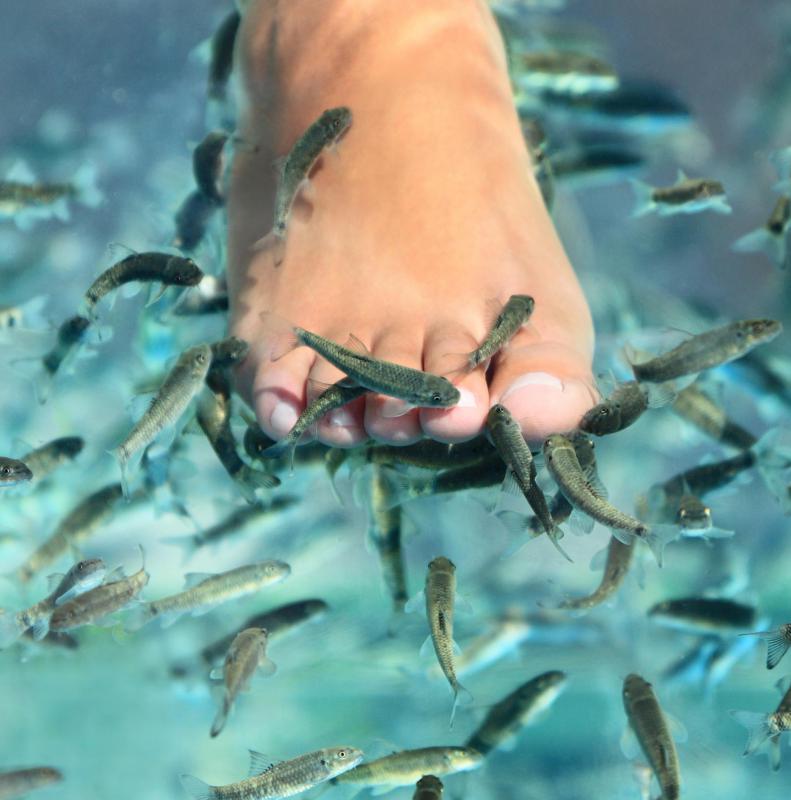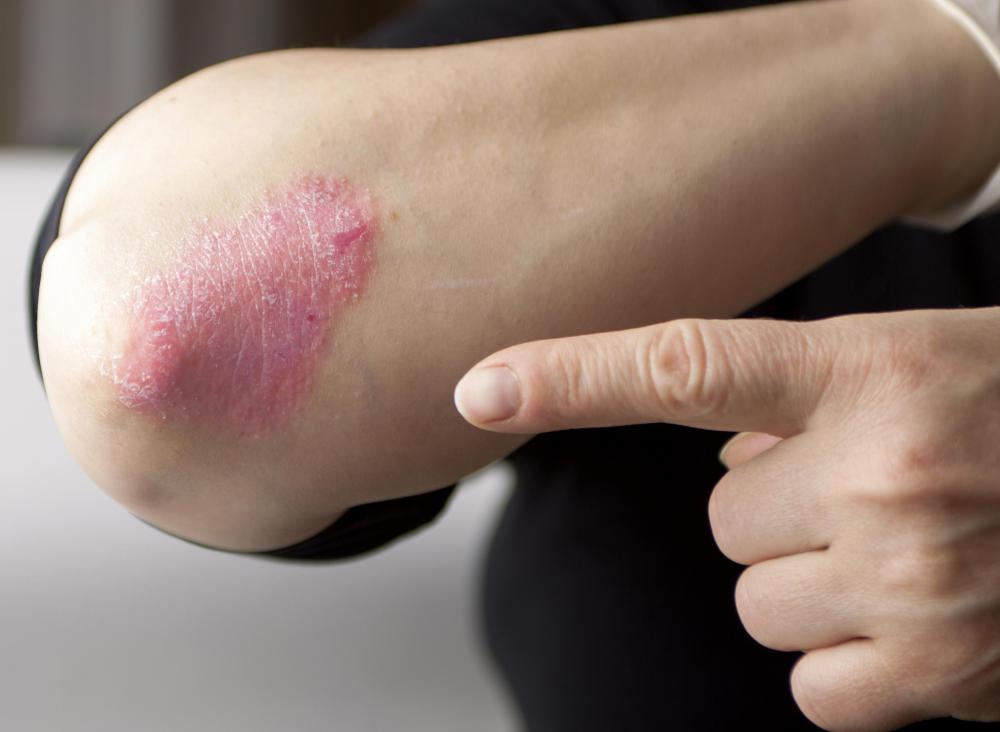At AllThingsNature, we're committed to delivering accurate, trustworthy information. Our expert-authored content is rigorously fact-checked and sourced from credible authorities. Discover how we uphold the highest standards in providing you with reliable knowledge.
What are Kangal Fish?
Kangal fish are fish which have adapted to the warm and mineral rich environment of the water in springs located in parts of Turkey and Westrern Asia. These naturally occurring fish often show up in outdoor pools at spas, which is when an interesting trait of the fish was observed: these fish like to eat dead or diseased skin, offering natural debridement to those who are willing to hop into the water with the fish.
These fish are also known as doctor fish or nibbler fish. Two separate species of fish appear to have developed the skin-eating behavior: Cyprinion mactrostomus and Garra rufa. Of the two, G. rufa seems to be the better-known. In Turkey, Kangal fish are protected, due to concerns that overharvest of the fish for the overseas trade could threaten the health of fish populations.

While the relationship between bathers and Kangal fish probably started out as a novelty, it has since become quite commercially profitable. Spas in Turkey, Japan, and the United States all offer Kangal fish treatments to clients at a premium price, sometimes as part of spa packages targeted at people with skin conditions like psoriasis.
These fish are not harmful, because they will not eat living tissue. The warm, mineralized water softens the skin, making it easy for the fish to nibble off the dead skin, leaving healthy living skin behind. For people with painful skin conditions, nibbler fish can bring temporary relief, especially if treatments are repeated on a regular basis. Others simply enjoy the novelty of a Kangal fish pedicure or full-body exfoliation.

In an environment with an assortment of foods to choose from, Kangal fish will usually prefer the food to dead skin. The skin-eating behavior probably arose in response to minimal available resources, which forced the fish to get creative about finding nutrition. Several other fish species exhibit this behavior in stressful conditions, suggesting that fish simply recognize a potential source of sustenance when they see it.
In addition to being kept in spas, these fish can also be kept in private aquariums. They can be a bit tricky to raise, because they require water with the right balance of minerals and the correct temperature. Several companies raise Kangal fish for sale to private collectors and spas.
Frequently Asked Questions
What are Kangal fish and where can they be found?
Kangal fish, also known as Garra rufa, are small freshwater fish native to river basins in the Middle East, particularly in Turkey, Syria, Iraq, and Iran. They are renowned for their unique behavior of feeding on dead skin, which has popularized them in spa treatments for natural exfoliation.
How do Kangal fish help with skin conditions?
Kangal fish gently nibble away at dead skin without damaging healthy skin, providing a natural exfoliation process. This can be beneficial for conditions like psoriasis, where removing dead skin can alleviate symptoms. However, medical opinions vary, and it's essential to consult a healthcare provider before using them for therapeutic purposes.
Are Kangal fish treatments safe?
Generally, Kangal fish treatments are considered safe if proper hygiene standards are maintained. However, there is a risk of infection if the water is not properly sanitized or if open wounds are present. It's crucial to ensure that the spa adheres to rigorous health and safety protocols to minimize risks.
What is the experience of a Kangal fish spa treatment like?
During a Kangal fish spa treatment, individuals immerse their feet or other body parts in warm water tanks containing the fish. The sensation is often described as a light tickling or tingling as the fish gently exfoliate the skin. The treatment is typically found relaxing and enjoyable by participants.
Can Kangal fish be kept as pets?
While Kangal fish can be kept in home aquariums, they require specific conditions to thrive, such as a warm water temperature and a diet that includes biofilm and dead skin. Potential owners should research their needs thoroughly and be prepared to maintain a suitable environment for their well-being.
What is the environmental impact of Kangal fish spas?
The popularity of Kangal fish spas has led to concerns about the sustainability and welfare of these fish. Overharvesting from the wild can threaten local ecosystems. Ethical spas source their fish responsibly and ensure their health and welfare, contributing to conservation efforts and sustainable practices.
AS FEATURED ON:
AS FEATURED ON:












Discuss this Article
Post your comments